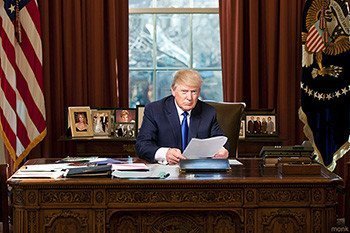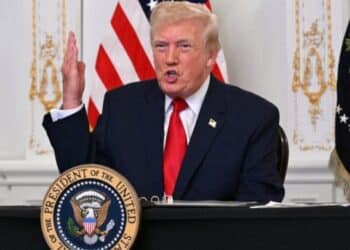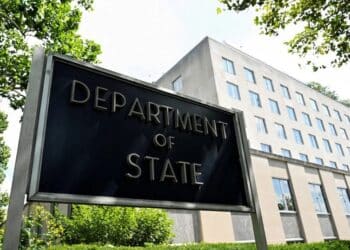PRESIDENT Donald Trump signed an order on Monday that will seek to dramatically pare back federal regulations by requiring agencies to cut two existing regulations for every new rule introduced.
Trump’s latest executive action will prepare a process for the White House to set an annual cap on the cost of new regulations. For the rest of fiscal 2017, the cap will require that the cost of any additional regulations be completely offset by undoing existing rules.
“There will be regulation, there will be control, but it will be normalized control,” Trump said as he signed the order in the Oval Office, surrounded by a group of small business owners.
Trump, a businessman turned politician, campaigned on a promise to reduce federal regulations that he said burdened American businesses.
During a meeting with the small business owners earlier on Monday, Trump said regulations are keeping businesses from expanding and banks from lending money.
“Dodd-Frank is a disaster. We’re going to be doing a big number on Dodd-Frank,” Trump said, referring to the 2010 Wall Street reform law.
mplementing the new policy may be difficult alongside the Trump administration’s push to repeal and replace the Affordable Care Act, said Tom Bulleit, head of the healthcare practice in the Washington D.C. office of law firm Ropes & Gray.
As the Congress passes new legislation on healthcare, there will need to be new rules, Bulleit said.
“There’s a great deal of regulation that is either expressly required by legislation or is necessary to make the legislation work,” he said.
Consumer groups and environmentalists slammed the push to peel back regulations, arguing that it would block important protections for the public.
Major regulations are typically reviewed by the White House’s Office of Management and Budget (OMB) before they are issued. That review will continue under this new measure, but agencies will also have to identify what two regulations will be repealed to offset the costs of any new rule.
Harvard Law School Professor Jody Freeman said the new order was “entirely unnecessary,” given similar cost-benefit regulatory directives made by past presidents and existing agency processes for reviewing older rules to make sure they are still needed.
“Even it is fairly toothless in the end, it will be a weapon that OMB can use to harass agencies and slow regulation,” Freeman said.
The new order does not require that the repeal of the two regulations be done simultaneously with the release of additional rules.
“This vests tremendous power and responsibility in the OMB director to ensure the president’s direction in how we manage this across the government,” a White House official told reporters ahead of the signing of the order.
Certain categories of regulations will be exempt from this new policy, including those dealing with the military and national security. The OMB director will also have the ability to waive this policy in certain instances.
Trump has tapped U.S. Representative Mick Mulvaney of South Carolina to lead the OMB.











